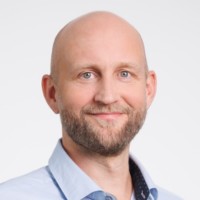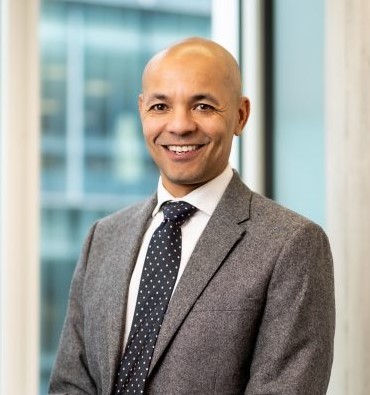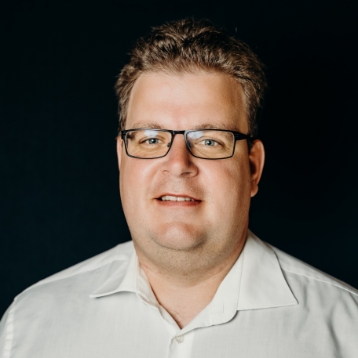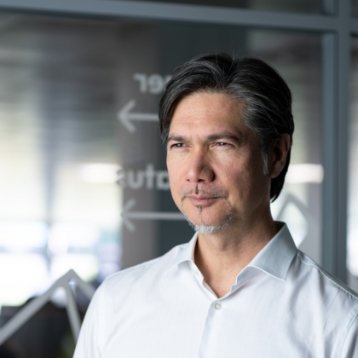On 19 March 2025, the Net-Zero Industries Mission (NIM) welcomed 64 participants from 11 countries to an engaging webinar focused on one of the most urgent challenges in industrial decarbonisation: reducing emissions in the cement sector. As cement production accounts for around 8% of global greenhouse gas emissions, the session brought together international experts, innovators, and industry leaders to explore viable pathways towards net-zero cement.
Setting the Stage for Transformation
Urban Peyker, Director of NIM, opened the session by highlighting the wider challenge: energy-intensive industries collectively contribute 25% of global emissions. He introduced NIM’s mission to drive rapid, large-scale transformation—aiming to implement over 50 demonstration projects by 2030 to showcase scalable decarbonisation solutions.
Industry Insights and Innovative Solutions
The webinar featured a diverse panel of speakers, presenting breakthrough approaches to cutting carbon emissions in cement production:
- Paul Adeleke from the Global Cement and Concrete Association (GCCA) stressed cement’s indispensable role in global infrastructure. He outlined the GCCA’s 2030 roadmap to reduce emissions by 20–25%, and underscored the importance of effective policy, innovation, and financing to enable the transition.
- Florian Kleinwächter of Holcim presented the company’s pioneering carbon-neutral cement plant in Lägerdorf, Germany. Designed to capture nearly 100% of its CO₂ emissions and reuse it as a raw material, the project sets a benchmark for circular and climate-conscious manufacturing.
- Anne Dekeukelaere from EPFL introduced LC3 (Limestone Calcined Clay Cement), a low-carbon alternative that reduces CO₂ emissions by up to 40%. By utilising abundant resources such as calcined clay, LC3 offers a scalable and sustainable option for the construction industry.
- Davide Zampini of CEMEX showcased the use of concentrated solar thermal power (CSTP) in clinker production—a promising innovation that enables solar-powered, zero-emission cement manufacturing, particularly suited to sun-rich regions.
Looking Ahead: Collaboration for Climate Impact
The event delivered a clear message: decarbonising the cement sector is not only necessary but achievable. Real progress will depend on strong cross-sector collaboration, supported by bold investment in innovation, infrastructure, and enabling policy.
As the global community advances towards climate neutrality, events like this underscore the role of collective leadership and innovation in shaping a sustainable future for one of the world’s most emissions-intensive industries.
Presentations
- Welcome note and introduction Net-Zero Industries Mission
Urban Peyker, NIM Mission Director
- Keynote on Decarbonising the Cement and Concrete Industry
Paul Adeleke, Strategy, Communications and Policy Director, Global Cement and Concrete Association (GCCA)
- “Carbon2Business” – From an emission to a raw material”
Florian Kleinwächter, BDM CCUS at Holcim Germany
- “LC3 cement – the immediately scalable low carbon cement”
Anne Dekeukelaere, ED Centre for Worldwide Sustainable Construction (CWSC) at Ecole polytechnique fédérale de Lausanne (EPFL), Switzerland
- “Solar Clinker”
Dr. Davide Zampini, Cemex VP of Global Research & Development
Moderator
Dr Alan Monaghan, NIM Mission Coordinator

Dr Alan Monaghan, Global Mission Coordinator of the Net-Zero Industries Mission, is a physicist, specialising in developing and delivering executive level strategy and change programs, from organisational restructures and project delivery capability establishment, through to the special risk management needed for technology development, implementation and commercialisation. He is currently the Senior Vice President of the global Technology & Expert Solutions team for Worley’s Resources sector, where Worley’s global SME pool is engaged to provide high priority customer solutions, across innovation and solution validation, through to project delivery, including leading their First of a Kind technology delivery and external technology partnership programs.
Speakers
Urban Peyker, NIM Mission Director, Head of Industry, Enterprise and Financing, Climate and Energy Fund, Austria

Urban Peyker is the Head of the Industry, Enterprise, and Financing department at the Austrian Climate and Energy Fund. He leads initiatives to promote sustainable industrial practices and drive Austria’s transition to clean energy. Previously, he managed programs on Smart Grids, Hydrogen and Industrial Decarbonisation at the Austrian Research Promotion Agency (FFG). He has also worked as an energy efficiency consultant and as an energy market analyst. Peyker plays a key role in funding and supporting projects that enhance energy efficiency, sustainability, and climate innovation. His leadership contributes significantly to Austria’s climate goals and the advancement of green technologies.
Paul Adeleke, Strategy, Communications and Policy Director, Global Cement and Concrete Association (GCCA)

Paul leads the GCCA’s work on outreach and engagement to positively position the industry and achieve global recognition for concrete as the sustainable building material of choice. Paul has extensive experience in reputation and public affairs, working for global business, industries and governments around the world.
Anne Paula Dekeukelaere, ED, Centre for Worldwide Sustainable Construction (CWSC) at EPFLCentre for Worldwide Sustainable Construction (CWSC) at EPFL

Anne Dekeukelaere is a leading expert in cement and decarbonisation, currently serving as Executive Director of the Centre for Worldwide Sustainable Construction (CWSC) at EPFL. She has extensive experience in the cement industry, including over a decade with Holcim, where she played a key role in sustainability and alternative fuels. As the founder and Managing Director of Cementis, she advises global cement producers and organizations like the EBRD and IFC on CO₂ mitigation and sustainable strategies. She has served as the cement lead during COP29 and currently serves as facilitator to the “Cement and Concrete Breakthrough Initiative.”
Florian Kleinwächter, Senior Business Development Manager CCUS, Holcim Germany

In his role as Senior Business Development Manager CCUS at Holcim, Florian Kleinwächter is focusing on the planning and implementation of CO2 logistics beyond plant boundaries—including transport, storage, and utilization of CO2—while developing logistics solutions and infrastructure projects for the C2B initiatives at Holcim’s three German cement plant locations. He previously held leadership roles, including Managing Director at SMART & GREEN Mukran Concrete GmbH and Administration Manager at Wasco Coatings Germany GmbH, demonstrating his expertise in project management and sustainable development.
Dr Davide Zampini, Vice President CEMEX Global R&D

Dr. Davide Zampini is the Vice President of CEMEX´s Global R&D and based in Switzerland. He leads a multi disciplinary group of top scientists and specialists that spearhead new technologies and solutions for the world’s building materials market.

